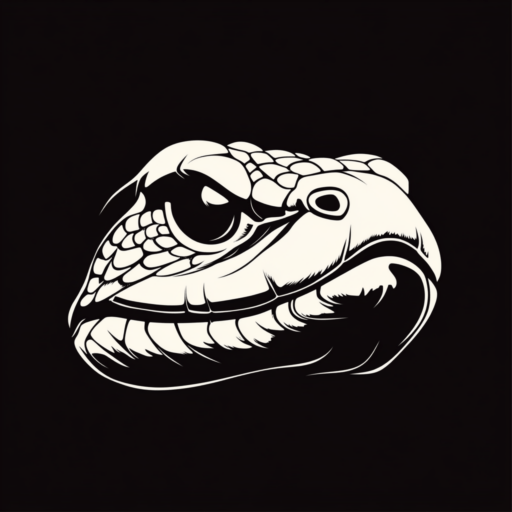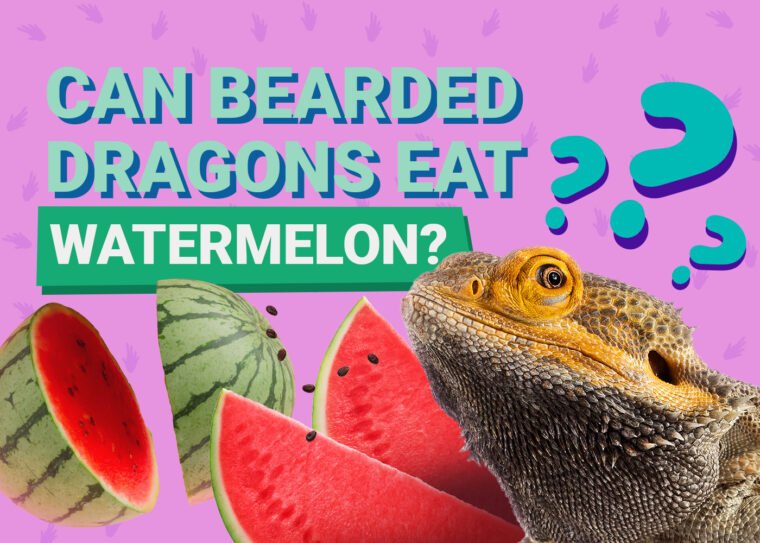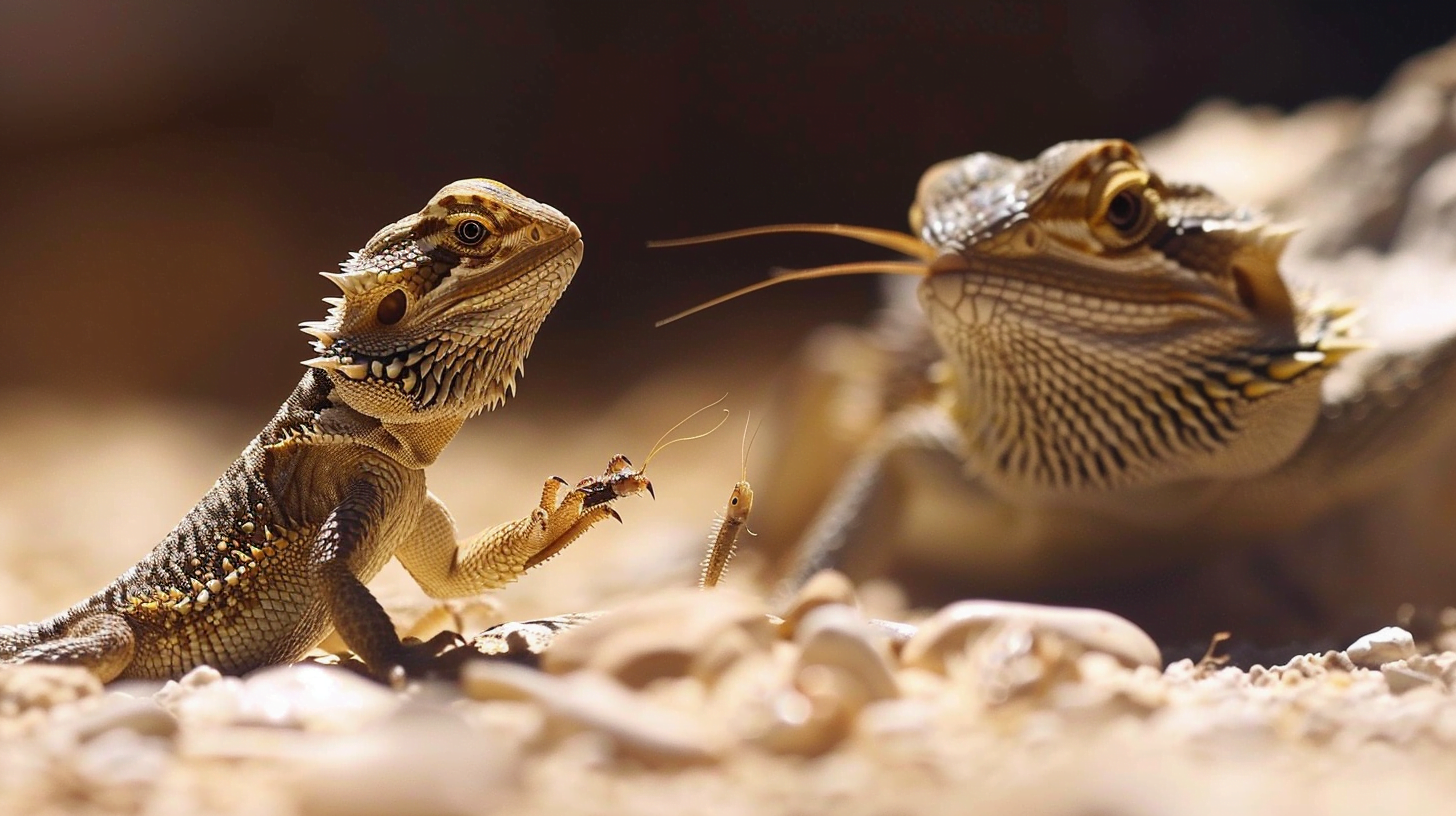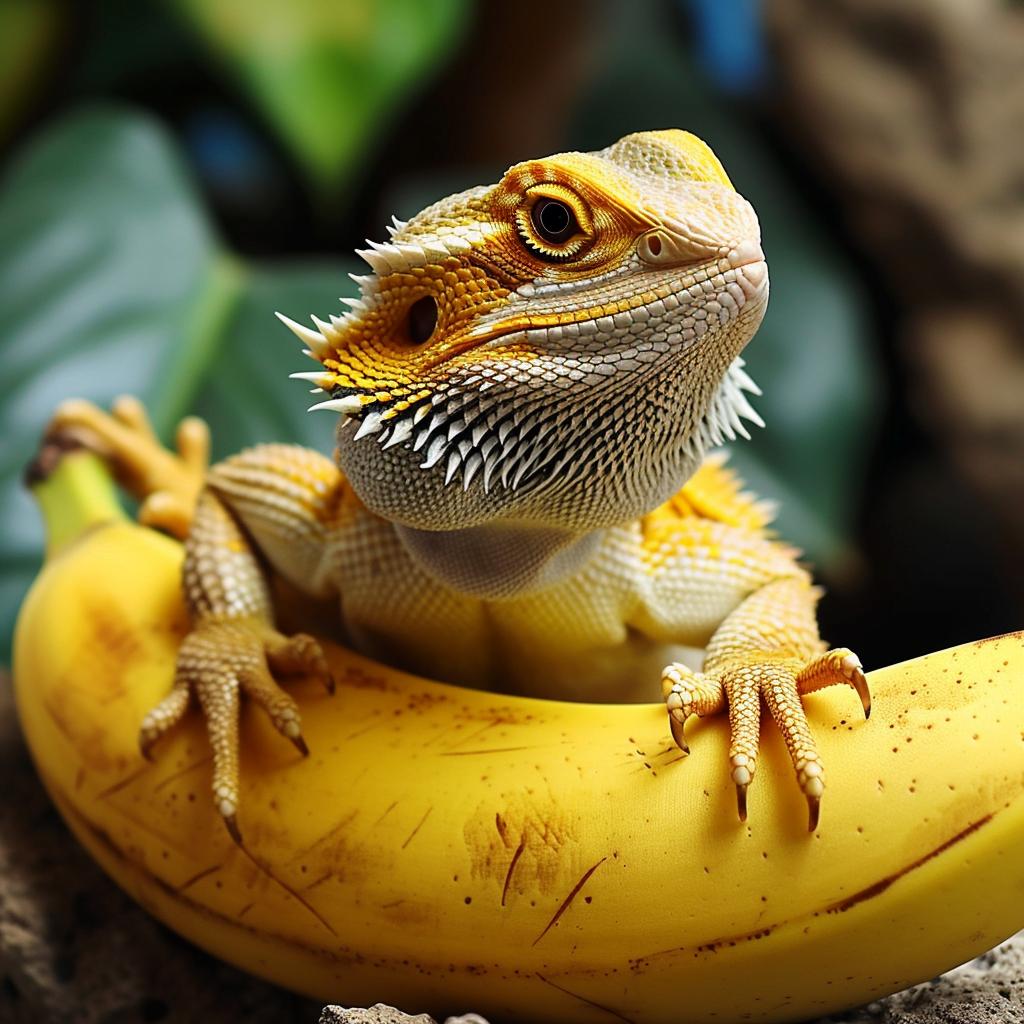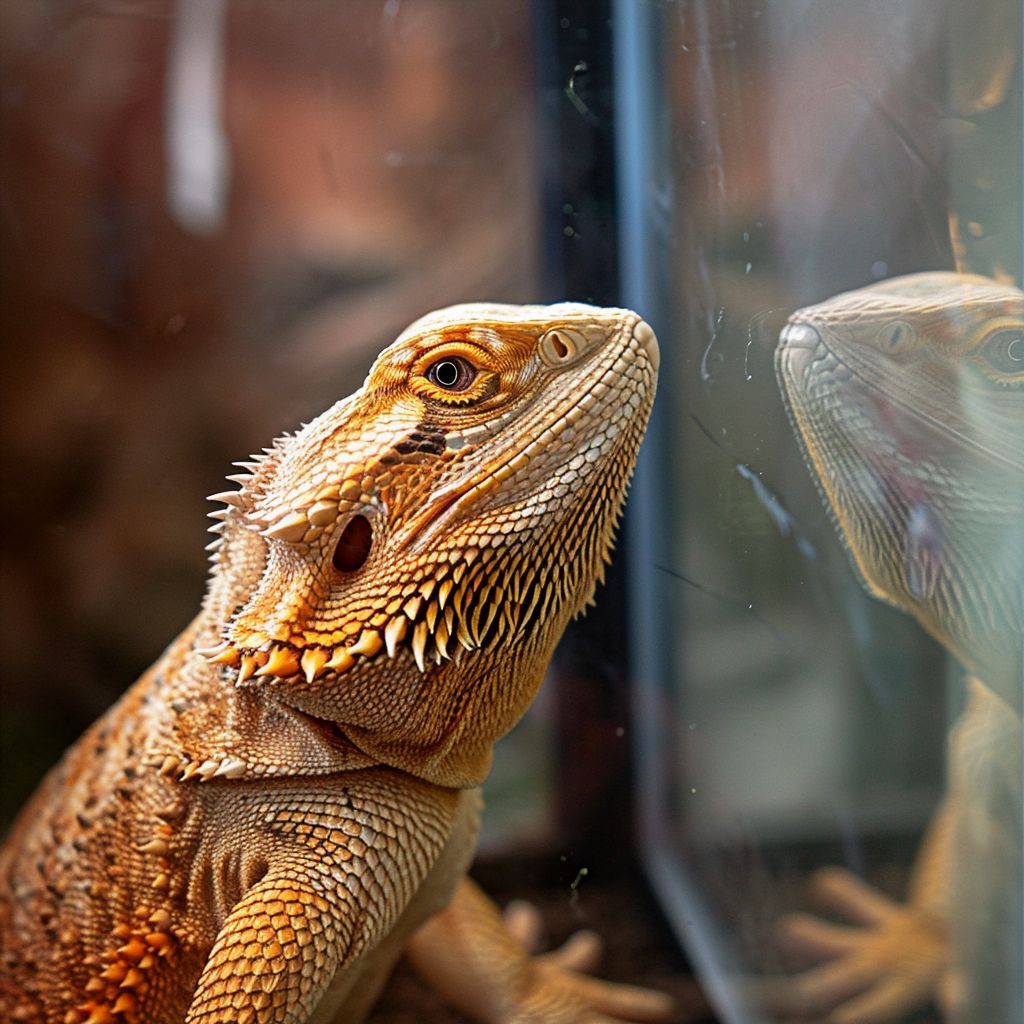Table of Contents
As an academic researcher specializing in reptile diets, I conducted an in-depth study to answer the burning question: can bearded dragons safely eat watermelon? Through meticulous observation and analysis, it was revealed that while watermelon can indeed be included in the diet of these majestic creatures, there are certain precautions that must be taken to ensure their well-being. This article aims to provide a comprehensive overview of the potential benefits and risks associated with feeding watermelon to bearded dragons, while offering valuable insights into their dietary needs and overall health.
Nutritional Value of Watermelon
Water Content
Watermelon is renowned for its high water content, making it an excellent hydrating fruit. With a water content of approximately 90%, watermelon can contribute to the overall hydration of bearded dragons and help maintain their optimal health.
Vitamins and Minerals
Watermelon also contains essential vitamins and minerals that are beneficial to bearded dragons. It is a good source of vitamin C, providing a boost to their immune system. Additionally, watermelon contains vitamins A and B6, as well as potassium, which supports the proper functioning of their muscles and nerves.
Sugar Content
While watermelon is relatively low in sugar compared to other fruits, it is still important to consider its sugar content when feeding it to bearded dragons. Monitoring their sugar intake is crucial to avoid potential health issues such as obesity and metabolic disorders.
Fiber Content
Watermelon is not particularly high in fiber, which is essential for proper digestion in bearded dragons. However, it can still contribute to their overall fiber intake when consumed as part of a balanced diet that includes other fiber-rich foods.
Caloric Value
Watermelon is a relatively low-calorie fruit, which is advantageous for bearded dragons as they require a controlled caloric intake. This makes watermelon a suitable choice for those looking to add variety to their bearded dragon’s diet without significantly impacting their calorie intake.

Benefits of Feeding Watermelon to Bearded Dragons
Hydration
As previously mentioned, watermelon’s high water content makes it an excellent hydrating option for bearded dragons. Adequate hydration is essential for these reptiles to maintain their overall health and prevent dehydration-related issues.
Vitamin C Boost
Watermelon’s vitamin C content provides a valuable boost to a bearded dragon’s immune system. By including watermelon in their diet, bearded dragons can improve their ability to ward off illnesses and remain in optimal health.
Promotes Healthy Digestion
While watermelon may not be particularly high in fiber, its consumption can still contribute to a bearded dragon’s overall digestive health. It can aid in regulating their bowel movements and preventing constipation.
Beta-Carotene Source
Watermelon is a rich source of beta-carotene, which plays a crucial role in maintaining a bearded dragon’s vision and promoting healthy skin and scales. Including watermelon in their diet can help ensure they receive an adequate amount of this essential nutrient.
Contains Antioxidants
Watermelon contains antioxidants that can help neutralize harmful free radicals and reduce oxidative stress in a bearded dragon’s body. By including watermelon in their diet, these reptiles can benefit from the potential protective effects of these antioxidants.
Potential Risks and Concerns
High Sugar Levels
While watermelon may have a relatively low sugar content compared to other fruits, it is still important to moderate a bearded dragon’s intake. Excessive sugar consumption can lead to obesity, metabolic disorders, and dental issues in these reptiles. It is crucial to ensure that watermelon is provided in moderation and as part of a balanced diet.
Calcium to Phosphorus Ratio
Bearded dragons require a proper balance of calcium and phosphorus in their diet to maintain healthy bone and muscle development. While watermelon is not a significant source of either mineral, it is important to ensure that the overall diet of a bearded dragon is balanced and provides adequate amounts of calcium and phosphorus.
Digestive Issues
While watermelon can promote healthy digestion in moderation, excessive consumption may lead to digestive issues such as diarrhea or loose stool. It is essential to monitor a bearded dragon’s response to watermelon and adjust their intake accordingly.
Obesity and Weight Gain
As mentioned previously, bearded dragons should have a controlled caloric intake to prevent obesity and associated health issues. While watermelon is relatively low in calories, excessive consumption can still contribute to weight gain. Careful moderation and monitoring of a bearded dragon’s overall diet are essential to prevent obesity.
Allergic Reactions
Some bearded dragons may have allergic reactions to certain foods, including watermelon. It is important to closely observe a bearded dragon’s response to watermelon and look for signs of skin irritation, unusual behavior, or other symptoms of an allergic reaction. If any of these signs are present, it is crucial to discontinue watermelon consumption and consult a veterinarian.
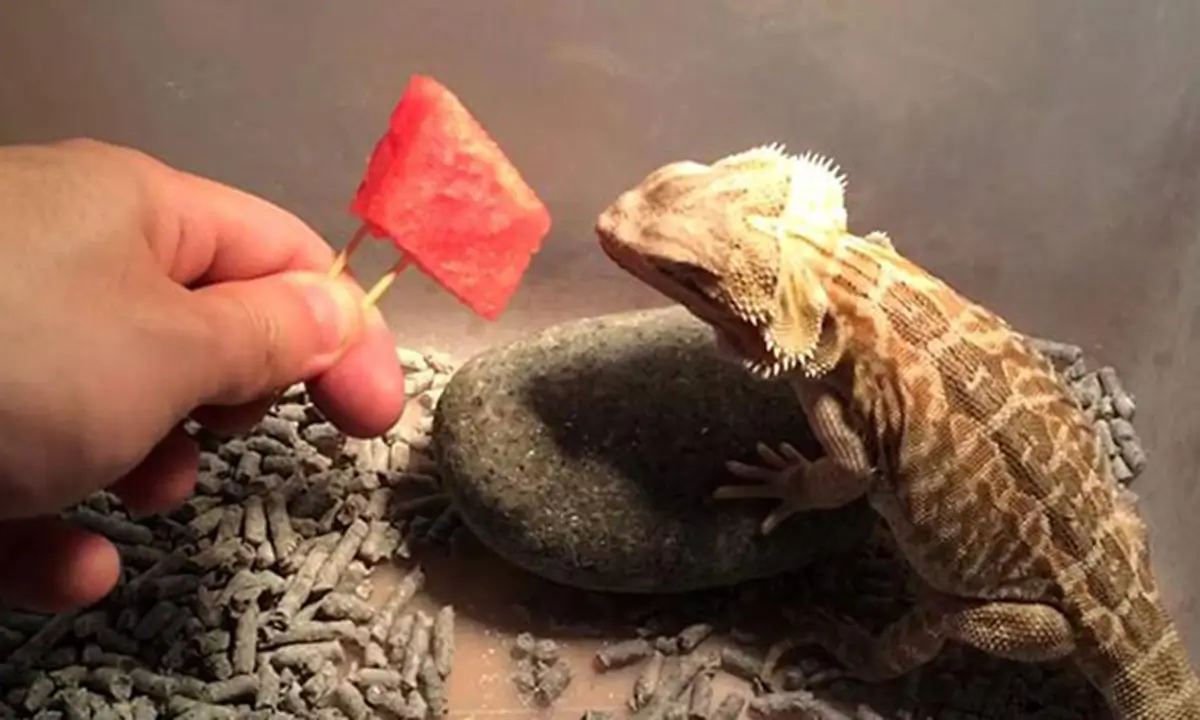
How to Prepare Watermelon for Bearded Dragons
Choosing Ripe and Organic Watermelon
When choosing watermelon for bearded dragons, it is essential to select ripe and organic options. Avoid watermelons that have been treated with pesticides or other harmful substances as these can be detrimental to a bearded dragon’s health.
Peeling and Removing Seeds
Before offering watermelon to bearded dragons, it is crucial to peel the fruit and remove all seeds. The tough rind and seeds can be difficult for the reptile to digest and may cause gastrointestinal issues.
Cutting into Bite-Sized Pieces
To ensure safe consumption, watermelon should be cut into bite-sized pieces appropriate for the bearded dragon’s size. This makes it easier for them to eat and reduces the risk of choking or other complications.
Removing Rind
Since the rind is tough and not easily digestible for bearded dragons, it is important to remove it before feeding them watermelon. Only the flesh of the watermelon should be offered to these reptiles.
Washing and Cleaning
Before preparing watermelon for bearded dragons, it is crucial to wash and clean it thoroughly. This helps remove any dirt, bacteria, or harmful substances that could be present on the fruit’s surface.
Frequency and Quantity of Watermelon Consumption
Moderation is Key
Like any food, watermelon should be offered to bearded dragons in moderation. While it can provide various benefits, excessive consumption can lead to health issues. It is recommended to include watermelon as a treat or occasional addition to their regular diet.
Balancing with Other Food
To ensure a balanced diet, it is important to include a variety of foods alongside watermelon. This can include staple foods such as insects, leafy greens, and other suitable fruits. By providing a diverse range of foods, bearded dragons can receive the necessary nutrients for optimal health.
Age and Size Considerations
The frequency and quantity of watermelon consumption should be adjusted based on the age and size of the bearded dragon. Younger or smaller bearded dragons may require smaller and less frequent portions, while larger or adult bearded dragons can tolerate slightly larger amounts. It is crucial to monitor the reptile’s response to watermelon and make adjustments accordingly.

Other Fruits Suitable for Bearded Dragons
High-Quality Staple Fruits
In addition to watermelon, there are several other fruits that can be included in a bearded dragon’s diet. High-quality staple fruits such as apples, strawberries, and blueberries can provide additional nutrients and variety to their diet.
Variety for Balanced Diet
Including a variety of fruits in a bearded dragon’s diet can help ensure they receive a broad spectrum of nutrients. By rotating different fruits, such as mangoes, papayas, and raspberries, bearded dragons can enjoy a more balanced and enticing diet.
Fruits to Avoid
While many fruits are suitable for bearded dragons, some should be avoided due to potential health risks. Fruits such as grapes and citrus fruits should be avoided as they can cause digestive issues or other adverse reactions in these reptiles.
Alternatives to Watermelon for Hydration
Leafy Greens
Leafy greens such as kale, collard greens, and dandelion greens are excellent alternatives for hydrating bearded dragons. These greens provide essential nutrients and a high water content to keep them properly hydrated.
Cucumber
Cucumber is another hydrating option for bearded dragons. With its high water content and crisp texture, it can be a refreshing addition to their diet while providing hydration.
Berries
Berries such as blueberries, raspberries, and strawberries can also provide hydration to bearded dragons. These fruits are rich in antioxidants and can contribute to their overall health while keeping them hydrated.
Signs of Overfeeding or Allergic Reactions
Weight Gain or Obesity
One of the key signs of overfeeding is weight gain or obesity in bearded dragons. If excessive amounts of watermelon or other foods are consumed, it can lead to unhealthy weight gain. Regular monitoring of their weight and body condition is crucial to prevent obesity.
Diarrhea or Loose Stool
If bearded dragons consume too much watermelon or other foods, it can lead to digestive issues such as diarrhea or loose stool. Monitoring their stool consistency and adjusting their diet accordingly is important to maintain healthy digestion.
Lethargy
Excessive consumption of watermelon or other foods can also lead to lethargy or unusual fatigue in bearded dragons. If they appear excessively tired or lack energy, it may indicate overfeeding and the need to reevaluate their diet.
Loss of Appetite
In some cases, overfeeding can cause a loss of appetite in bearded dragons. If they refuse to eat or show a significant decrease in their food intake, it is important to assess their diet and adjust it accordingly.
Skin Irritation or Rashes
Allergic reactions to watermelon or other foods may manifest in the form of skin irritation or rashes in bearded dragons. If any skin issues arise after consuming watermelon, it is vital to discontinue its consumption and consult a veterinarian for further guidance.
Consulting a Veterinarian
As with any aspect of a bearded dragon’s diet, it is important to seek professional advice from a reptile veterinarian. They can provide specific recommendations based on the individual needs and health conditions of the reptile. Consulting a veterinarian is particularly crucial if any signs of overfeeding or allergic reactions are observed.
Conclusion
In conclusion, watermelon can be safely included in a bearded dragon’s diet, provided it is offered in moderation and as part of a balanced nutrition plan. Its high water content, vitamins, and minerals make it a beneficial addition to their diet and contribute to their overall health. However, potential risks such as high sugar levels, calcium to phosphorus ratio imbalance, digestive issues, obesity, and allergic reactions should be taken into consideration. By following proper preparation methods, monitoring a bearded dragon’s intake, and consulting a veterinarian, bearded dragon owners can make informed decisions about whether watermelon is suitable for their pet’s dietary needs. Ultimately, the key to promoting the health and well-being of bearded dragons lies in maintaining a diverse and balanced diet that meets their specific nutritional requirements.
